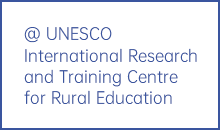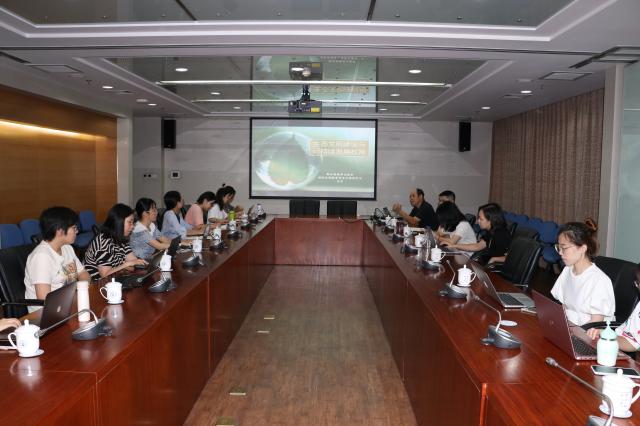On the morning of July 26, UNESCO International Research and Training Centre for Rural Education (INRUELD) held a symposium on "Ecological Civilization and Education for Sustainable Development". Wang Li, Professor, Deputy Director of the Centre, shared the essential issues in the ecological civilization and education for sustainable development. The staff of the Centre and the students and teachers from the summer internship program participated in the symposium.
China put the Ecological Civilization high on the agenda of China's modernization strategy; the 2021 Guiyang International Forum on Ecological Civilization was a great example. Professor Wang introduced the meaning of ecological civilization and underlined its significance that sustainable development requires the transformation from industrial civilization to ecological civilization. He emphasized that "ecological prosperity is the prosperity of civilization, and ecological decline is the decline of civilization."
In recent years, the resources consumed by human beings increasingly exceed the resources provided by the earth, how to use the earth's resources sustainably has become a pressing issue. For this reason, we need to reconsider whether the crisis facing humanity is simply an environmental and climate crisis or a crisis of the industrial civilization model itself. Suppose it is a crisis of industrial civilization itself. In that case, contemporary humanity is facing not just mere technological governance, but also innovation of a new model of civilization, which is an important point that China has submitted to the United Nations to share.
Besides, Professor Wang introduced the United Nations Decade of Education for Sustainable Development. He stated that the goal of the education for sustainable development is to equip the educated with scientific knowledge, learning abilities, correct values, and sustainable lifestyles to promote sustainable social, economic, environmental, and cultural development. Then, he proposed a "2-5-1-3-3-4-2-3-4" roadmap for education for sustainable development in China. Specifically, it stands for 2 educational functions (for sustainable social, economic, environmental and cultural development; for sustainable human development), 5 educational goals (developing sustainable development values; acquiring scientific knowledge of sustainable development; improving sustainable learning ability; practicing sustainable lifestyles; solving problems of sustainable development), 1 core value (education for sustainable development value), 3 basic contents (scientific knowledge of sustainable development; sustainable learning abilities; sustainable lifestyles), 3 levels of curriculum construction (national curriculum; local curriculum; school-based curriculum), 4 teaching-learning principles (exploration, integration, cooperation and practice), 2 thematic education (on resources and environment; on society and culture), 3 levels of school construction (experimental school; model school; national experimental school) and 4 expected results (Significantly update in local education; school philosophy; teacher professionalism; student quality).
In the end, participants shared their confusions on education for sustainable development and discussed whether China had the international right of speech on ecological civilization education. Professor Wang Li summarized and pointed out that ecological civilization and rural revitalization are two crucial national strategies. The realization of education for sustainable development needs the efforts of schools, families, and even the whole society. He concluded by calling for people's active participation in building an ecologically civilized and sustainable society.














